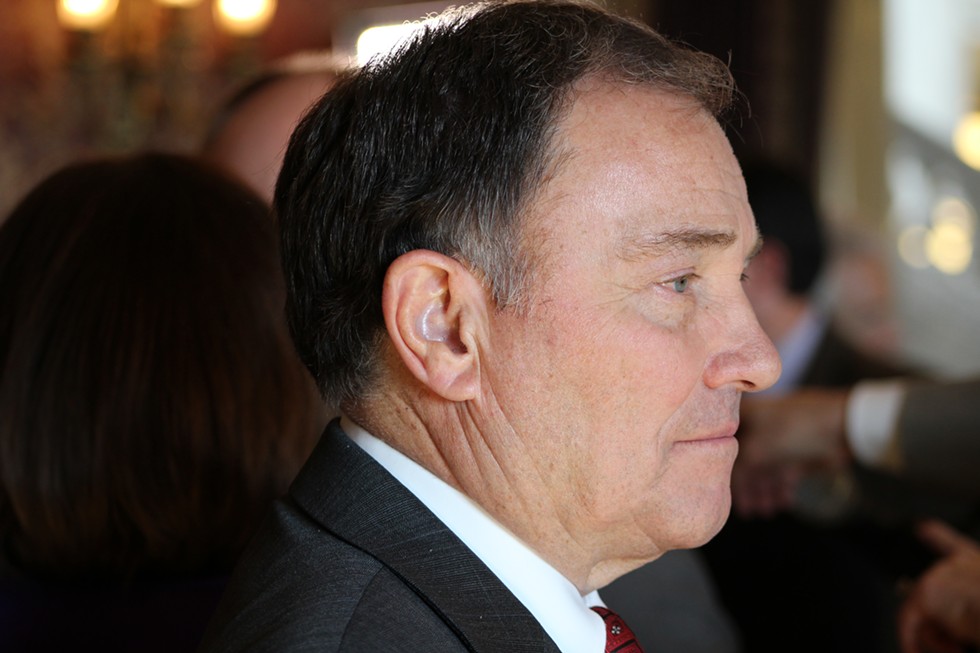Year
At his monthly press conference Thursday morning, Gov. Gary Herbert said he supported medical cannabis but was troubled that “we ignore federal law that says it’s illegal” and by the loopholes and potential uncertainty in an upcoming ballot initiative.
“I support medicinal use of marijuana based on science and based on the ability for a doctor to prescribe it for each individual patient that they have, and where we control the quality and the quantity. I think that’s the basic essence of medicine,” Hebert said to the gaggle of reporters at the studios of KUED Channel 7. “And if we think there’s a medicinal use here, we ought to follow that process so that the public is well-served.”
But, he continued, “it is troublesome” that federal law classifies it as illegal, given that, he has “sworn to uphold the Constitution, the laws.” Herbert suggested “a past administration” should have changed the law and taken marijuana off the federal Schedule 1 list—where it lies alongside heroin, LSD and peyote—“so we can actually do legitimate research.”
“Wouldn’t it be nice for all of us, [if] we can kind of put the debate to bed, and say, ‘Here’s what the science tells us’?” Herbert asked.
Utahns will be able to vote for or against medical cannabis in November on a ballot initiative to legalize cannabis-based treatment for people with a qualifying medical illness. That move, Herbert said, “has got lack of oversight, and some loopholes in it that causes concern,” like how people with medical cards can grow marijuana plants if there are no dispensaries within 100 miles.
“As soon as people start growing their own, you lose control,” Herbert said. “That’s not going to be hard to be 100 miles away from a dispensary in the state of Utah.” The loopholes and uncertainty could, Herbert said, “lead potentially” to recreational marijuana. And he worries 18 to 25 year olds will use such cannabis: “That young, developing brain probably is not gonna be helped if they’re gonna be out there using marijuana.”
“If marijuana can be used for medicine and alleviate pain and suffering, we ought to all be behind it,” Herbert continued, but “it ought to be treated like a medicine.”
“You can’t just sprinkle a little bit of seed into your muffins and into your brownies and say, ‘I think that’s good,’” he added. “We can do better. That’s all I’m saying.”
Herbert spent most of the roughly half-hour Q&A fielding questions on other ballot initiatives. He said he didn’t support the Medicaid expansion initiative because, “I think what we’ve got is a better alternative, My Healthy Utah was a better alternative. When you end up just embracing the Affordable Care Act, you have to embrace the costs that accompany it.”
“Medicaid is the budget buster of all budget busters in our state budgets,” he said. “It should be a concern if you care about balancing a budget.”
If the feds OK Utah’s Medicaid waiver request, Herbert said, “we will be able to cover people in some form or fashion up to 138 percent of poverty.”


